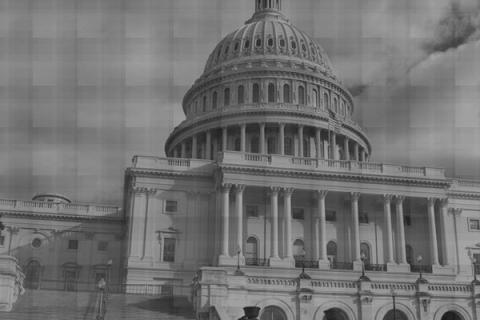What seems like a disastrous round of intransigent political behavior may well be the most efficient possible way for checks and balances to right our ship of state. The formula is almost fullproof: economic problems + extreme views + hubris = political change. Over a period so short that most of us can remember it clearly, the American public has thrown out the bums three times and may be getting ready to do so again. If pure extremism plays a minor role, hubris moves into the spotlight. Where hubris acts as the silent partner, extremism takes the lead. Meanwhile, the economy cooperates all too well.
After 9/11, President Bush’s administration was driven by the war on terror. Its international orientation was neocon, and its domestic mindset was homeland security. Its focus was total in this regard, and when anything else hinted of distraction, the declaration of a new emergency was deemed an adequate counter-strategy. Meanwhile, the American economy -- while slowing -- largely remained within normal operating range.
The administration's seeming obsession with terror and its ignorance of an increasingly serious credit and housing bust began to look like hubris in its second term, and when the Republicans nominated a less-than stellar team to go up against Barack Obama and Joe Biden, the outcome seemed a foregone conclusion. The result of the 2008 presidential and congressional elections gave Democrats control of the House, Senate and the presidency. What Karl Rove had promised to be a “permanent Republican majority” had collapsed in disarray and defeat.
Just four years later, the Democrats under President Obama and Speaker Pelosi had moved so quickly to change the legislative landscape that the nation began to suffer buyer’s remorse. Was it hubris that seduced the Democrats into acting too aggressively and with too little bipartisanship? They looked so self-satisfied that charges of extremism stuck. Worst of all, the Dems seemed clueless as Americans lost their jobs in droves. Unsurprisingly, in 2010, the Republicans swept back into control of the House and within striking distance of the Senate.
Rather than carefully finding a center-right strategy that would win over the crucial Independents, the Republicans embraced the far-right principles of the Tea Party and began experiencing an erosion of center and Independent support for their agenda. Today’s “mainstream” Republicans seem to be anything but mainstream. Have they again become seduced by the dark side of political success? Do they truly believe that it will be just fine to let the country dive into default rather than find a compromise position that forces them to deal with the "evil" Democrats?
Political comedian Bill Maher suggested last week that the Republican House members were behaving like the late Yassar Arafat when he was offered 97 percent of what he wanted from the State of Israel, yet refused the deal. Will the pubic be happy with hubris-driven tea partyers who are too extreme to know when it’s time to horse trade? Or will they see these politicians as honorable idealists?.
Our political pendulum has been swinging back and forth wildly for the past few years, but it's bound to land back in the middle soon, where most Americans agree that it belongs.

